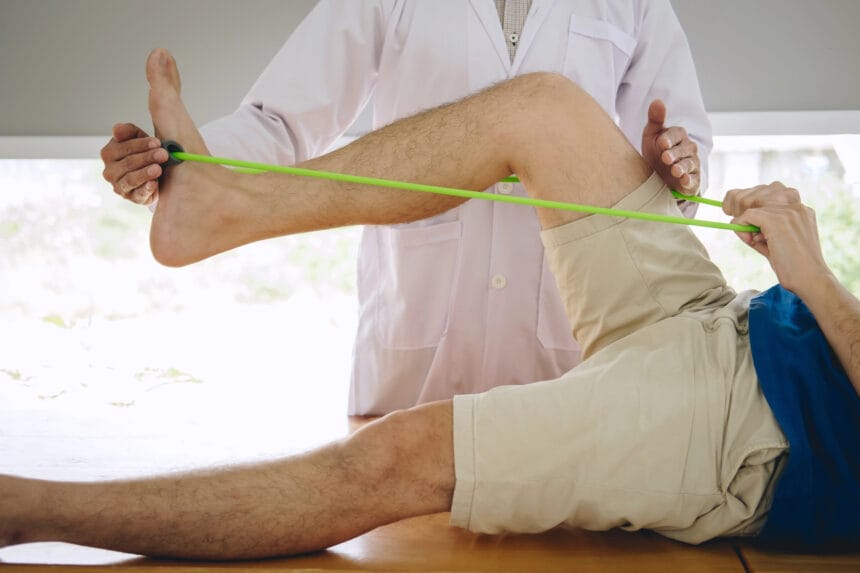Orthopaedic conditions can affect people of all ages and impact a variety of body parts, from bones and joints to muscles and tendons. Whether you are dealing with chronic joint pain, a sports injury, or a degenerative condition like arthritis, finding the right orthopaedic specialist is crucial for effective treatment and long-term relief. In Singapore, a wide range of orthopaedic specialists are available, making it important to know how to choose the right one for your specific needs.
Here are four key factors to consider when selecting an orthopaedic specialist in Singapore:
1. The Type of Orthopaedic Specialist You Require
Orthopaedics is a broad field that covers various parts of the musculoskeletal system. Depending on the condition you have, you may need a specialist with specific expertise. For example:
- Sports injuries: If you are an athlete or lead an active lifestyle and suffer from injuries such as ligament tears or fractures, a sports medicine orthopaedic specialist may be the right choice. These specialists focus on treating injuries caused by physical activity and often offer surgical and non-surgical treatments tailored to sports-related issues.
- Joint problems: Conditions like osteoarthritis or rheumatoid arthritis may require treatment from a specialist who focuses on joint replacement or preservation. Joint specialists often handle procedures such as hip or knee replacements to restore function and reduce pain.
- Spinal issues: For back pain, spinal deformities, or other issues related to the spine, an orthopaedic spine surgeon would be ideal. They deal with conditions like herniated discs, scoliosis, and other spine-related problems.
Understanding the type of orthopaedic specialist you need can help you narrow down your options and ensure that your chosen professional has the appropriate expertise for your condition.
2. Education, Training, and Experience
When choosing an orthopaedic specialist, it’s essential to consider their background in terms of education, training, and experience. A doctor’s qualifications are often an indication of their expertise and ability to handle your case effectively.
- Education: Look for specialists who have studied at reputable medical institutions and have undergone rigorous training in orthopaedic surgery. It can also be helpful to check whether they have completed advanced fellowships in subspecialties like sports medicine, joint replacement, or spine surgery.
- Experience: In addition to academic credentials, it’s important to find a specialist with experience in treating your specific condition. The more cases they have handled, the more likely they are to deliver successful outcomes. For instance, if you need a knee replacement, it’s wise to choose a doctor who has performed this procedure multiple times with proven success.
- Reputation: You can also evaluate a doctor’s reputation by reading reviews, checking patient testimonials, and looking at their involvement in research or teaching. Specialists who actively contribute to the medical field often stay updated with the latest treatments and technologies, offering better care to their patients.
3. Patient Reviews and Recommendations
Personal recommendations and patient reviews can provide valuable insights into an orthopaedic specialist’s practice and approach to patient care. If you know someone who has had a similar condition or surgery, ask them about their experience with their specialist. Were they satisfied with the results? Did they feel comfortable and well-informed throughout the process?
Additionally, many clinics and hospitals in Singapore have online reviews that can give you a glimpse into other patients’ experiences. Look for feedback about the specialist’s communication style, bedside manner, and effectiveness of treatment. A specialist with consistently positive reviews is more likely to provide you with a satisfactory experience.
It’s also worth considering whether the specialist’s clinic offers a comprehensive team-based approach. Some orthopaedic centres in Singapore have multidisciplinary teams that work together, including physiotherapists, pain management specialists, and rehabilitation experts, which can enhance the overall quality of care.
4. Success Rates and Focus on Safety
When choosing an orthopaedic specialist, it’s important to consider their success rates for the specific procedures or treatments they offer. A high success rate often indicates that the specialist has extensive experience and a strong track record of delivering positive outcomes. For surgical procedures such as joint replacements or spinal surgeries, this is particularly important as the success of the operation can significantly impact your quality of life.
In addition to success rates, consider the specialist’s focus on safety. Ensure they follow strict protocols to minimize the risk of complications during treatment. This can include reviewing whether they are affiliated with well-established hospitals or clinics known for their safety standards and advanced facilities.
Checking whether the specialist has ever been subject to disciplinary actions or malpractice suits can also give you peace of mind. In Singapore, the Singapore Medical Council (SMC) maintains a public database where you can verify a specialist’s credentials and any disciplinary actions that may have been taken against them.
Make the Right Choice for Your Orthopaedic Care
Choosing an orthopaedic specialist is a decision that should be made carefully, as it can greatly affect your treatment outcome and overall health. By considering the type of specialist you need, their education and experience, patient reviews, and their success rates and safety measures, you can find a trusted professional to guide you through your treatment journey.
With the right orthopaedic specialist, you can effectively address your condition, recover faster, and get back to enjoying an active and healthy lifestyle.










